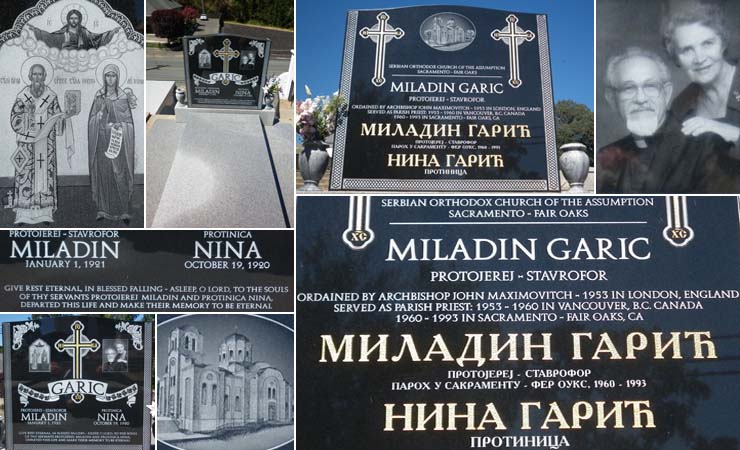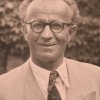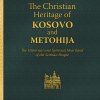Miladin 1921 - , Nina 1920 - 2009
Prednja strana spomenika:
GARIC
PROTOJEREJ-STAVROFOR PROTINICA
MILADIN NINA
JANUARY 1, 1921 OCTOBER 19, 1920
JULY 7, 2009
GIVE REST ETERNAL, IN BLESSED FALLING - ASLEEP O LORD, TO THE SOULS
OF THY SERVANTS PROTOJEREJ MILADIN AND PROTINICA NINA
DEPARTED THIS LIFE AND MAKE THEIR MEMORY TO BE ETERNAL
Zadnja strana spomenika:
SERBIAN ORTHODOX CHURCH OF THE ASSUMPTION
SACRAMENTO - FAIR OAKS
M I L A D I N G A R I C
PROTOJEREJ - STAVROFOR
ORDAINED BY ARCHIBISHOP JOHN MAXIMOVITCH - 1953 IN LONDON, ENGLAND
SERVED AS PARISH PRIEST: 1953 - 1960 IN VANCOUVER, B. C. CANADA
1960 - 1993 IN SACRAMENTO - FAIR OAKS, CA
М И Л А Д И Н Г А Р И Ћ
ПРОТОЈЕРЕЈ-СТАВРОФОР
ПАРОХ У САКРАМЕНТУ - ФЕР ОУКС, 1960 - 1993
Н И Н А Г А Р И Ћ
ПРОТИНИЦА
* Datum smrti protinice Nine Garic uzet je iz Knjiga Umrlih





